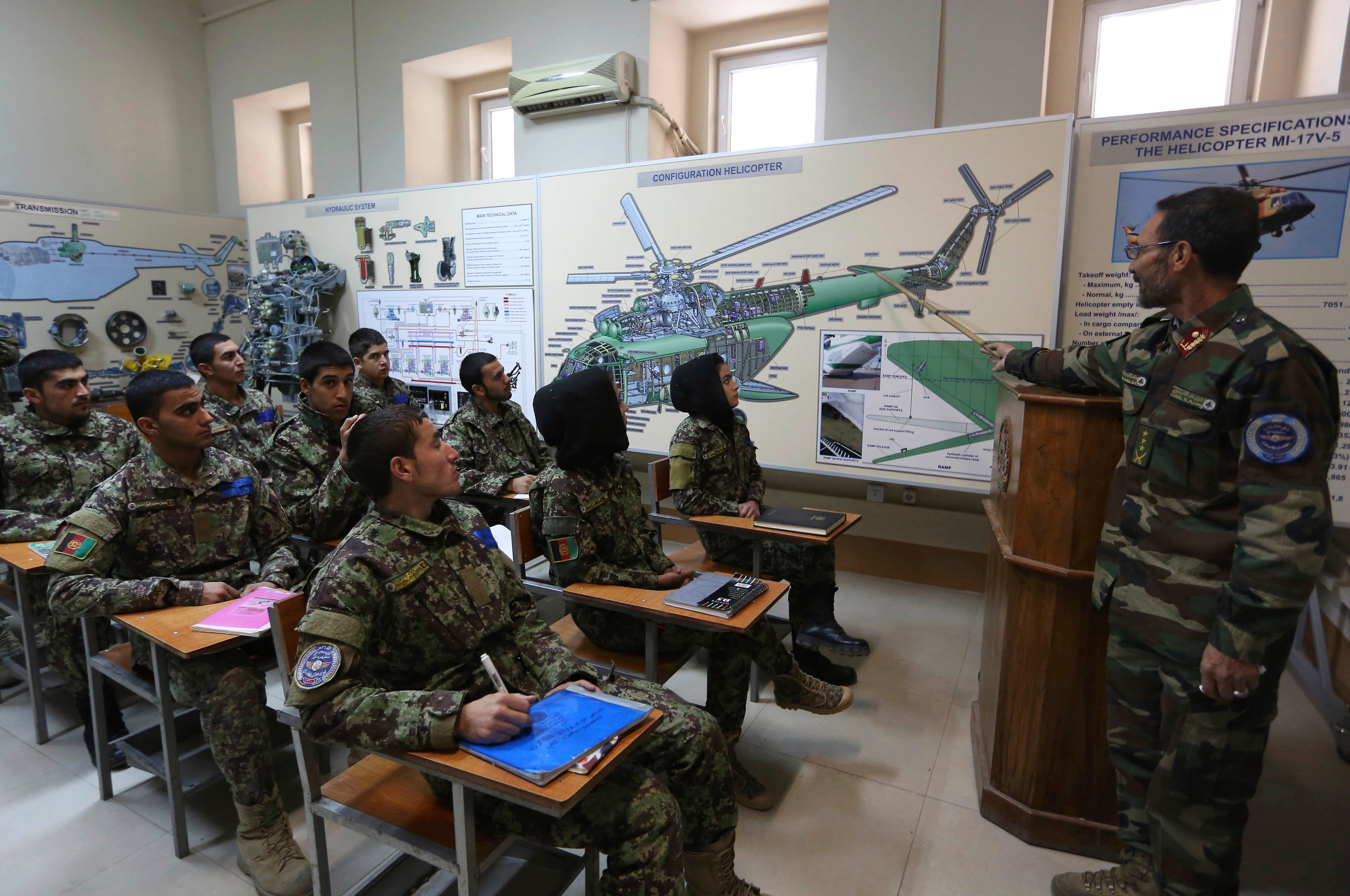KABUL, Afghanistan — Afghanistan needs a stable security environment to prevent it from again becoming a safe haven for al-Qaida and other militants, but Afghan security forces have not yet become capable of securing all of the country by themselves, a U.S. report said Wednesday.
The report, by the U.S. government's Special Inspector General for Afghanistan, offered a high-risk list assessment for the war-torn country, two years after NATO-led foreign combat forces pulled out at the end of 2014, leaving only a smaller training and assisting mission behind.
SIGAR, which provides independent oversight of U.S. reconstruction funds for Afghanistan, also noted that despite the fact that more than half of all U.S. reconstruction funds since 2002 has gone toward building, equipping and training Afghan forces, they still have lost territory to the Taliban.
"The Afghan national defense and security force has not yet been capable of securing all of Afghanistan and has lost territory to the insurgency," SIGAR said.
Last August, the U.S. military mission in Afghanistan, or USFOR-A, said only 63.4 percent of the country's territory was under government control — compared to the 72 percent that the military said was controlled by Kabul in November 2015.
SIGAR also noted at least seven other areas of concern in Afghanistan, including rampant corruption and drug trafficking.
"To combat the Taliban and other threats, the United States has provided more than $64 billion since 2002, including $3.45 billion in fiscal year 2016 alone, to support the Afghan National Army, the Afghan National Police, and the Afghan Air Force," the report quoted Inspector General John F. Sopko as saying.
SIGAR cited U.S. Defense Department reports that say Afghan forces are "generally capable and effective at protecting major population centers, preventing the Taliban from maintaining prolonged control of specific areas, and at responding to Taliban attacks."
The Taliban had declared their goal for 2016 was to take a provincial capital - something they failed to do despite several attempts.

In this Nov. 21, 2016 file photo, new Afghan air force pilots attend class at the air force university in Kabul, Afghanistan. A U.S. report released Wednesday, Jan. 11, 2017, said that Afghanistan needs a stable security environment to prevent it from again becoming a safe haven for al-Qaida and other militants. The new report by the Special Inspector General for Afghanistan Reconstruction says Afghan security forces have not yet become capable of securing all of Afghanistan by themselves.
Photo Credit: Rahmat Gul/AP
However, militant groups in Afghanistan are still capable of launching large-scale attacks, including in major urban centers — such as two large bombings, including a suicide attack, on Tuesday that killed at least 38 people near the government offices in Kabul.
Also Tuesday, a bombing that targeted the provincial governor's guesthouse in the southern city of Kandahar killed five diplomats from the United Arab Emirates and six other people. The governor and the UAE ambassador to Afghanistan were among several people wounded in that attack.
In 2014, SIGAR issued its first "High-Risk Report," identifying areas it assessed need special attention in Afghanistan. The new report is likely intended to help inform the incoming U.S. administration of the most pressing reconstruction challenges in 2017 and beyond.




